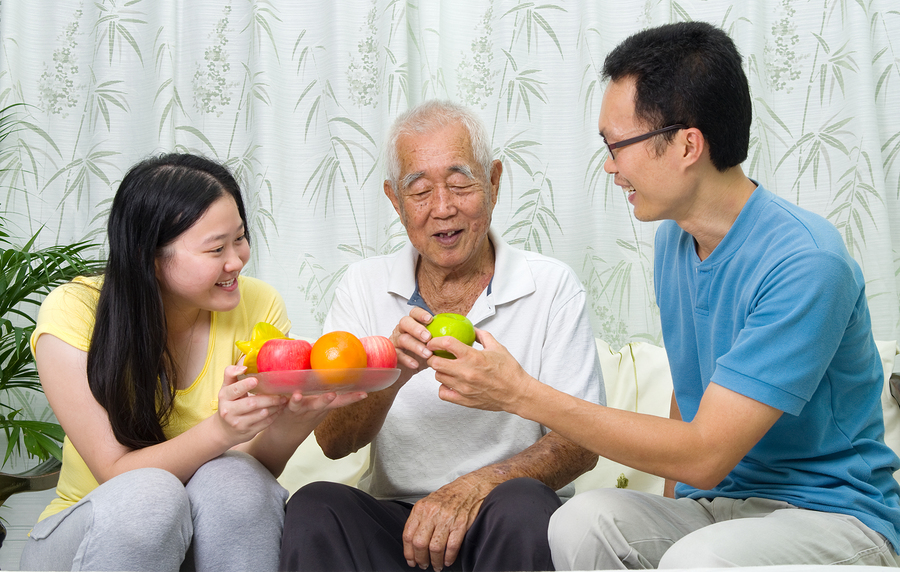Elders and the Danger of Malnutrition

March has been recognized as National Nutrition Month.
Good nutrition is critical to all our overall health and well-being, but many older adults are at a high risk of having inadequate nutrition. We should all be aware of the signs and risks of malnutrition in our older loved ones and take time to promote a nutrient-rich diet for them.
Health Concerns Caused by Inadequate Nutrition
Malnutrition in older adults can lead to many different health concerns, the Mayo clinic suggests that these include:
- A weak immune system and increased risk of infections.
- Poor and complicated wound healing.
- Muscle weakness and loss of bone mass, putting them at risk for falls and fractures.
- Anincreased risk of hospitalization and illness.
- A higher risk of death due to health complications caused by malnutrition.
Factors that Contribute to Malnutrition
Malnutrition is often caused by a combination of physical, social and psychological factors such as:
- Illness and Medications: illnesses and certain medications can negatively affect appetite and the way our bodies processnutrients.
- Impairment: Difficulty chewing or swallowing, poor dental health, or decreased ability in handling utensils. Limited physical mobility is also a factor.
- Alzheimer’s or Related Dementia Diagnosis: Behavioral or memory problems that are a result of the disease may cause someone to forgetting to eat or purchase adequate groceries and supplies.
- Social Isolation:Depression and loneliness causes many to lose interest in cooking and eating.
Addressing the Risk of Malnutrition
As a caregiver, you can take steps to address the risk of malnutritionby considering:
- Make mealtime a social event by sharing a meal together.
- Help with meal planning and shopping. If your loved one lives alone, spend time making meals and storing in serving size containers. Leave a “meal” schedule in writing reminding them what is available.
- Sign up for local services, such as Meals on Wheels, homemaker agency or ask a civic association or church for a friendly visitor.
- Monitor weight, mood and hygiene for any negative changes.
At our Elder-Well™ programs we monitor and address many of the risk factors of malnutrition. Our staff monitors our client’s nutritional wellness in many ways including:
- Daily nutrition and hydration assistance.
- General health and wellness monitoring.
- Social interactions and outings.
- Family caregiver support, guidance and resources.
If you or someone you know needs information about malnutrition, please contact me directly at kara@elderwelladultday.com
Regards,
Kara Harvey- Founder and CEO
Elder-Well™ Adult Day Program
